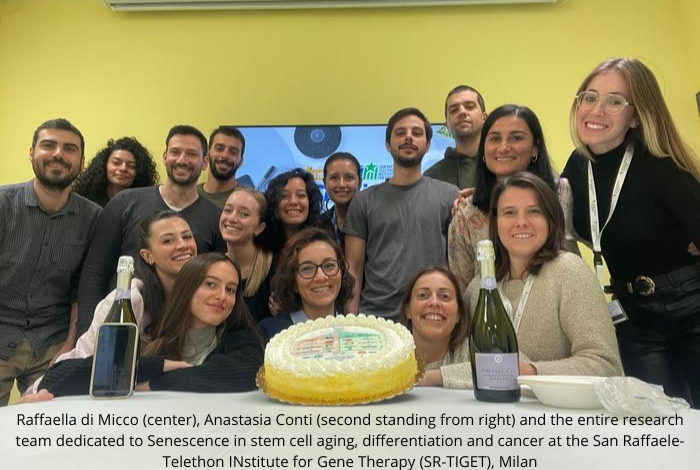
A new study published in Cell Reports Medicine by the team led by Prof. Raffaella di Micco — Associate Professor at the University School for Advanced Studies IUSS Pavia and Group Leader at the San Raffaele Telethon Institute for Gene Therapy (SR-Tiget) — has identified an unexpected side effect of CRISPR-Cas9 gene editing using AAV6 vectors: the activation of inflammatory and senescence-like responses in hematopoietic stem cells, reducing their long-term regenerative potential.
🔬 The research, conducted in collaboration with European partners and the team of Prof. Luigi Naldini, shows that edited stem cells retain a kind of molecular “memory” of the gene-editing process, with relevant implications for the safety and durability of gene therapy.
💡 To counteract these adverse effects, the study tested two effective strategies:
- Transient inhibition of the p53 protein
- Treatment with Anakinra, a clinically approved anti-inflammatory drug
Both approaches improved the performance of edited stem cells and reduced genotoxic risks, marking a significant advance toward safer and more effective gene-editing therapies for inherited blood disorders.
📌 This result highlights IUSS’s contribution to the fields of cell biology, molecular medicine, and advanced biotechnology, through active collaboration with leading international research centers.